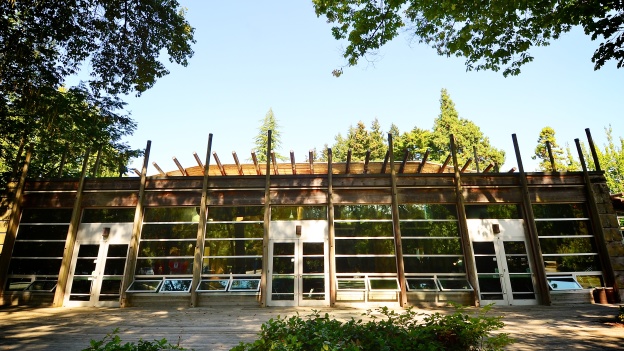Speaking as someone who is one-fourth Northern Tutchone and three-fourths settler European (German, mostly, and about six other things), I have always had something of an identity crisis when it comes to my Native heritage. My dad was half Northern Tutchone, from the Yukon, my place of birth. He was visible to me, in his ‘Nativeness,’ with his dark(er) skin and black hair, his reluctance to miss an episode of North of 60, and his penchant for dried moose meat (what I wouldn’t give for some of that right now!). But aside from a few visual markers and minor culture clashes, we lived like any middle-class family in Victoria, BC. I have never set foot on a reserve, save for when my dad wanted to buy cheap smokes. I scarcely saw his side of the family until they came down for his funeral. Many of my close friends would routinely ‘forget’ that I’m something other than white at all. My point is, I can’t claim to have truly felt the racism and oppression that lurks in daily life for visible Indigenous people in Canada.
That being said, I have proudly attained my Indian Status this past August, and have been in touch with my Yukon family frequently over the last three years (sadly, it was another funeral that reunited us). I have begun to actively identify as ‘Native’ and have taken a much greater interest in seeking out and supporting Native arts, literature, and activism. And as you can see, I typically refer to myself and other First Nations people as “Native.” Until coming to UBC, this was not much of a question for me. My dad always said Native, my family has always said Native, my Native friends at school said it, and so do I. Now, I rotate through terms, as much for the sake of variety as anything. When writing, if I’ve said Indigenous recently, I’ll opt for Aboriginal in the next line, and so on. In my daily life, though, it’s always Native.
Given this, I felt a little sad to see how quickly S.M. dismissed the term and its usage in “Social Justice Synonyms #12: Indigenous Identity and Terminology.” I understand that S.M.’s article clarifies the term should be avoided by settlers, and is not speaking for Indigenous people. And yes, in an academic context, “native” can be both confusing and vague—evoking racial slurs, and ugly colonial anthropological texts or journals.
However, Native is still actively being used by many Aboriginal people, young and old, and this shows that it’s being reclaimed. Outside academia—a place reserved for a very privileged few, of which Natives make up only a tiny fraction—terms like Indigenous and Aboriginal can sound clinical and distant. ‘First Nations’ especially irks me, as it implies an inevitable, pre-destined timeline that resulted in the ‘second’ or ‘next’ nations setting up shop. It is better left to describe formally-organized groups within the Canadian political arena, rather than individual people.
The idea of referring to a Native person by their specific tribe, as S.M. posits, is a good one. It simultaneously asserts the individual’s Indigeneity while acknowledging the cultural specificities between tribes. It also gives back a name to cultures that were victim to (attempted) cultural genocide, keeping that culture alive. However, this presents a problem for displaced Aboriginal people, specifically those who do not know of, or identify with their tribe or nation. Take, for example, those who grew up in adoptive or foster homes, and who may have little to no knowledge of their particular tribe. Shouldn’t there still be a term that situates them alongside others who are of Native heritage—those who have experienced similar oppression and racism, regardless of what tribe they belong to?
This brings me to my main point about ‘Native’: it’s a really good mobilizing term. It’s short, it’s effective, and it includes a large number of people. It sidesteps the distancing effect that ‘Indigenous’ and ‘Aboriginal’ can have, by being simple and immediate. Particularly, it seems to work well for younger generations, and has carved out a niche for itself on social media.
Aside from festivals and organizations such as imagineNATIVE, I’ve seen, among my own Facebook and Twitter friends, hashtags like: #nativepride, #nativeart, #nativeyouth, #nativebeauties, and even #nativebabies. These posts and tweets trumpet Native heritage in a proud, cheekily boastful way that the more academic-sounding terms just can’t seem to. It cultivates a community that feels more shared and inclusive than the other options—something that is vital for a people still struggling to be recognized as actual human beings who exist in the present, modern world. In fact, the notion that “Native” is too closely associated with ‘Native American,’ and thus the United States, doesn’t strike me as a bad thing. After all, borders and the nation-states of Canada and the USA came with colonization. Eliminating the term Native (or anything else) because it is ‘too American’ seems pointless, and strangely nationalistic.
Again, I applaud and thank S.M., and any other settlers/allies who are making an effort to engage in supportive, sensitive dialogue. If in doubt, Indigenous and Aboriginal are most likely not going to offend anyone—whereas, who knows, Native might. I just want us to keep in mind that context is everything: ‘Indigenous’ said with a sneer can be as racist and hurtful as any term. ‘Native’ should not necessarily be avoided for settlers, so long as it’s used with understanding, respect, and self-awareness. The word has power and potential, and seeing it wither away would be a true shame.
Special thanks to Matt Ward and K. Ho for the encouragement, and S.M. for writing the article that prompted these thoughts.
Teresa is a fourth-year GRSJ major at UBC.




